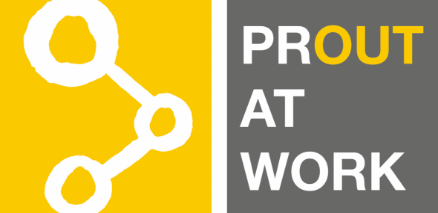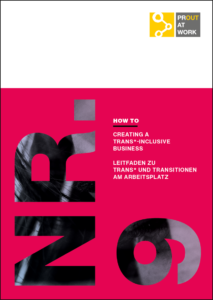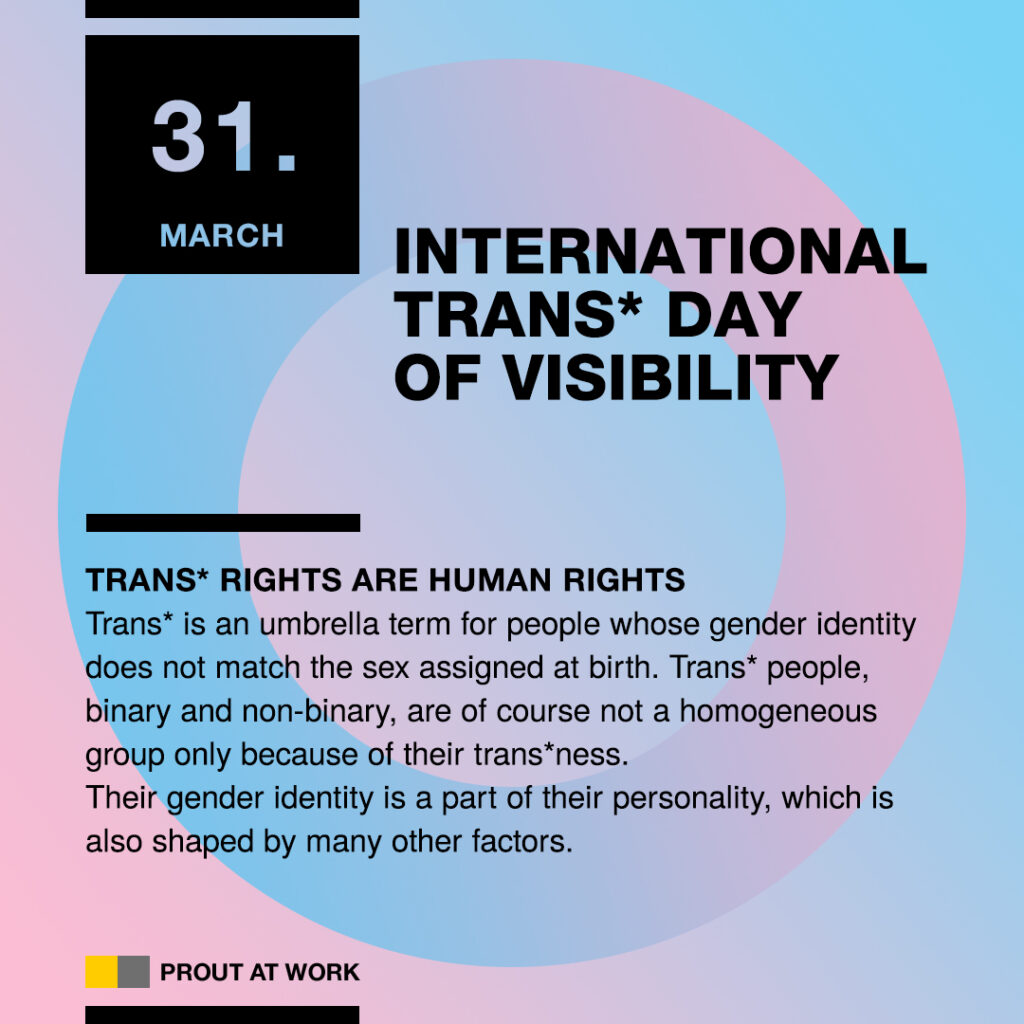
Trans* Day of Visibility (TDoV) has taken place each year on March 31 since 2009. The day is dedicated to raising awareness and visibility for trans* people and drawing attention to existing discrimination and transphobia. The day also provides a special opportunity for cis people to show solidarity with trans* people and stand up for equal rights. For us it is clear: #TransRightsAreHumanRights.
Trans* is used adjectivally and serves as an umbrella term for people whose gender assigned at birth does not match their gender identity. The asterisk (also asterisk) represents the multiplicity of possibilities of gender identities and gender expressions. Trans* thus refers to a diverse spectrum of identities, lifestyles and concepts that do not (want to) be located exclusively in a binary way.
All people should have the right to determine their own definition of their gender identity. The so-called “Transsexuellengesetz” (TSG) has prevented this for decades and is an example of the ongoing discrimination against trans* people. A new self-determination law must replace the TSG in order to protect trans* people from lengthy and humiliating procedures and make it easier to uphold their basic and human rights.
More information about trans* and trans* people can be found on Queerlexikon.
On the occasion of this year’s TDoV, we want to present you with the books “Being Human” by Alice Oehninger and “Ich bin Linus: Wie ich der Mann wurde, der ich schon immer war” by Linus Giese, the movie “Trans – I Got Life” and the MyStory’s by Hanna Brungs and Marit Wiechmann, personal stories of trans* people, but also tips and information about trans* at the workplace via our How To Guide No. 9 “Trans* and Transitions at the Workplace”.
ICH BIN LINUS: WIE ICH DER MANN WURDE, DER ICH SCHON IMMER WAR By LINUS GIESE

Linus has suspected that he is trans* since he was six years old. But out of shame and ignorance about terms such as queer, trans* and non-binary, he hid his true self for a long time. In 2017, he frees himself from his old life with the sentence “I am Linus”. In his book, Linus Giese also talks openly about the highs and lows of his journey, on which he repeatedly encounters hatred, especially on the internet. But that doesn’t stop him from standing up for the rights of trans* people.
Bein Human – An Autobiography by Alice Oehninger
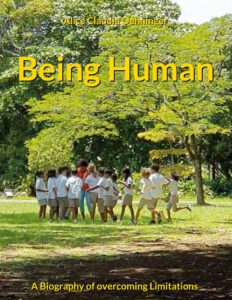
Alice is trans*. She looks like a white boy. In traditional Tanzania, she is expected to play this role. She goes through love and rejection and discovers a strong desire to be a parent. Playing the role of a man, she marries and finds happiness in Germany until a crisis destroys her fragile world.
Meetings and border crossings in cultures and gender. A very personal story that touches and invites reflection.
Trans – I Got Life
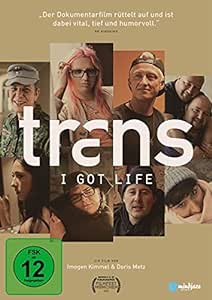
TRANS – I Got Life distils the broad spectrum of trans identity from the life stories of seven charismatic people. TRANS – I Got Life is a sensual journey into the in-between worlds beyond fixed gender norms, into intimate living spaces and into surgery, which becomes a delivery room for a second birth. In a subtle and multi-layered way, the trans experience is also transferred to the visual and audio level.
Creating a trans*-Inclusive Business – How To Guide Nr. 9
The guide covers the topic of trans* in the workplace and addresses employers, colleagues and trans* people themselves. It contains tips, information and experience reports to raise awareness and educate people on the topic. In addition, an exemplary process of a transition at the workplace is outlined and assistance for communication is offered.
Night of Realization – MyStory with Hanna

For a very long time I was searching for myself and at times I confused this with the search for other, material things – and I had to realize that these things did not really make me happy.
TRANS* IS SOMETHING WONDERFUL – MyStory with MArit Wiechmann
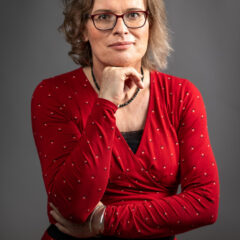
As a woman, I now have the courage to do things, make decisions and accept help. Why? What could happen if something goes wrong? After all, I am a human being with strengths and weaknesses and I am allowed to make mistakes, but also to be successful.
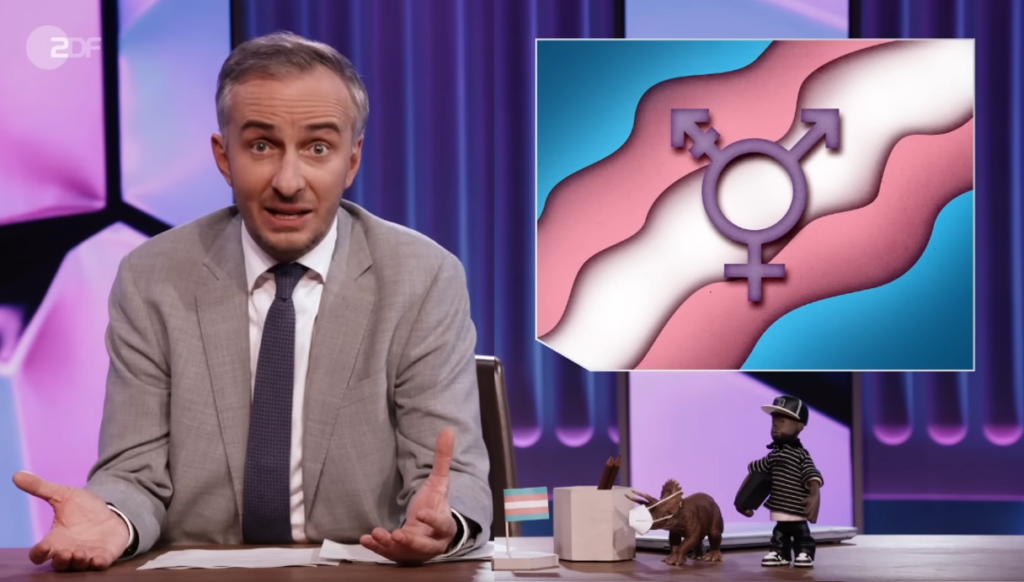
Equal rights for all?
In ZDF Magazin Royale, Jan Böhmermann settled accounts with trans* hostility and gave trans* people a voice. This is primarily about the right of free development for all, which is engrained in the German Basic Law (cf. Art. 2 GG). For the free development of identity, however, trans* persons still have to fight hard, because according to the currently valid “Transsexuellengesetz” they still have to undergo strongly degrading and discriminating procedures to adapt their civil status to their gender identity. As soon as next year, the 40 year old “Transsexuellengesetz” will be replaced by the new self-determination law. Some politicians and TERFS (trans excluding radical feminsits) want to prevent this by all means and thus deny trans* persons their own gender identity and restrict their free development.
” being trans is not fashion – but trans-hostility is”
He particularly takes aim at Alice Schwarzer, editor-in-chief of the magazine Emma, who calls trans* existence a “fashion”-statement. Böhmermann also presents AfD politician Beatrice von Storch and her trans-hostile propaganda-which downright denies the existence of trans people-in his show and explains what is really behind it. The satirist provides insights into the structures and power influences behind trans* hostile actors and campaigns. These are often entire networks and influential personalities. They include, for example, two oligarchs who work together with the Russian president and have invested around 188 million dollars in European anti-gender or anti-trans* campaigns up to 2018, or the American “Alliance Defending Freedom” (ADF), which has so far invested 23 million dollars in trans* hostile campaigns and commercials. Here, typical trans* hostile arguments are often used.
“Violence against women usually doesn’t happen in the women’s locker room, it happens at home”
In his show, Böhmermann debunks the typical arguments against trans* people and addresses the self-determination law that was passed. Thus, he argues against the “intrusion of trans* women into women’s shelters” and the “exploitation of the women’s quota” by addressing the violence against women that mostly takes place in one’s own home and not in the public locker room. Against the exploitation of the women’s quota by trans* women, the satirist argues that people would have it much easier with the “men’s quota” anyway, so for what reason should one change the personal status? The presenter also debunks the often-used argument of biological sex by showing that there are more than just two biological sexes.
Trans* hostility is an everyday evil of our society, which is not only strongly discriminatory and wants to deny people their identity, but also violates the Basic Law. Everyone should be able to live out their own identity at any time and in any place without restriction and without fear of negative consequences and violence. If you would like to help your trans* colleagues to live a discrimination-free everyday life also at the workplace, we recommend our free HOW TO guide on the topic of trans* and transition at the workplace.
MORE TIPS FOR TRANS* PEOPLE
Here at a glance is an excerpt on further assistance:
- Seek allies and role models within the company.
- If possible, work with the company to create a communication and action plan.
- Very important: You set the pace!
- Network with the LGBTIQ network, if one exists. We have compiled a list of LGBTIQ networks in companies and organizations.
TIPS FOR COMPANIES AND ALLIES
- A Transition Guide clearly specifies who is responsible. Note: the trans* person determines the pace and whether an action should be implemented. Every transition is individual
- Enable name and pronoun changes before the official decision is made.
- Training sensitize HR and management
- Establish and strengthen an internal LGBTIQ network with dedicated trans contact persons
- Inform about the topic trans*
- Use gender inclusive language, ask for a person’s pronouns so they use the one chosen by the trans* person and not their deadname. Deadname is the old, discarded name of a trans* person.
- Only ask questions that you would answer yourself
- Consciously stand up for the rights and against the discrimination of trans* persons
advice centers
BUNDESVERBAND TRANS*
“The Bundesverband Trans* (BVT) sees itself as a federation of individuals, groups, associations, federations and initiatives at regional, state and national level whose common endeavor is the commitment to gender diversity and self-determination and the commitment to human rights in terms of respect, recognition, equality, social participation and health of trans persons or persons not located in the binary gender system.”
DEUTSCHE GESELLSCHAFT FÜR TRANSIDENTITÄT UND INTERSEXUALITÄT E.V.
“The dgti has set itself the goal of promoting the acceptance of transidents within society and counteracting their stigmatization. It should advise and support those affected and interested, if this is desired. An essential aspect of the work should be the (re-)integration of affected persons into the work process, in order to counteract the danger of social decline, which is still associated with social change today. It advocates more openness to one’s own identity and takes into account the diversity of human existence.”
TRANSMANN E.V.
“Nationwide, volunteer-based, non-profit association for all woman-to-male (FzM/FtM) trans* and inter* people.”
TRANSINTERQUEER E.V.
“TrIQ is a social center and a politically, culturally and in the research field active association, which stands up for trans, intersex and queer living people in Berlin and beyond.”
TRANS*INTER*BERATUNGSSTELLE
“The project of the Münchner Aids-Hilfe e.V. is equally there for trans* and inter* people as well as their relatives and friends.”
TGEU
“TGEU is a membership-based organization that was founded in 2005. Since then, TGEU has steadily grown and established itself as a legitimate voice for the trans* community in Europe and Central Asia, with 157 member organizations in 47 different countries.”
Trans* Awareness Week and Trans Day of Remembrance
The week of November 14-20, 2022 is trans* Awareness Week. The main goal is to create visibility for the trans* community and to draw attention to problems that trans* people have to face every day. The week ends on November 20th with the trans* Day of Remembrance which is an international day of remembrance for trans* people who died in the last year due to trans* violence. On this occasion we call for solidarity and active engagement for the rights of trans* people and demand this also from the side of politics.
To give visibility to the history of the trans* community, in this post we introduce you to five historical trans* pioneers.
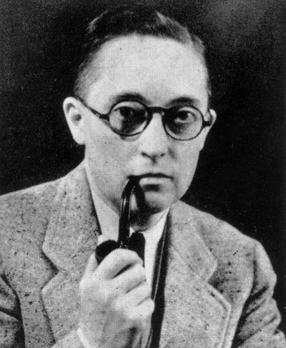
Alan L. Hart (*1880 †1962)
Alan L. Hart was a trans* man who was not only the first person in the U.S. to receive a total hysterectomy, but Alan was also a writer, researcher, and physician who saved the lives of several thousand tuberculosis patients through modern x-ray diagnoses.
Dora (Dorchen) Richter (*1891 †unknown)
Dora “Dorchen” Richter is a historically important trans* woman. She was the first known person in Germany to undergo complete gender reassignment between 1922 and 1931. Dorchen worked as a domestic servant alongside several other trans* people for Magnus Hirschfeld, the director of the Berlin Institute for Sexual Sciences, until it was attacked and destroyed by a Nazi mob in 1933. It is unclear, however, whether Dora was murdered in this attack or died at the hands of Nazis over the next few years, as there were no further records of her from that day on.
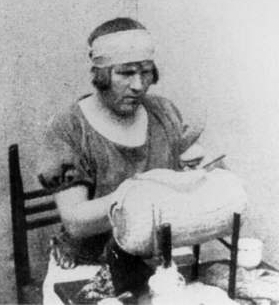
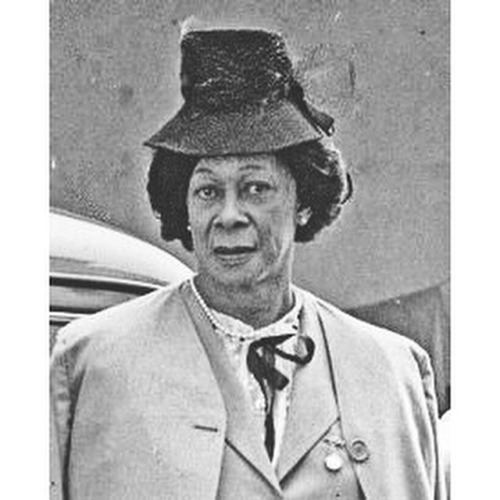
Lucy Hicks Anderson (*1886 †1954)
Lucy Hicks Anderson was a true trans* pioneer of her time. Even as a young child, she told her parents that she preferred to be a girl and be called Lucy. Lucy married two men in her life and fought for legal effectiveness of her marriage, as she was assigned to the male gender at birth. This made her a very early campaigner for marriage for all as well as for the rights of trans* people.
Willmer “Little Axe” Broadnax (*1916 †1992)
Willmer Broadnax, one of the first recorded POC trans* men in the U.S., is also an exciting trans* personality, although hardly anyone knew him until his death. It was only after he was stabbed to death by his partner in an argument that an autopsy revealed he was a trans* man. Willmer was not an unknown person in his lifetime; he was a nationally famous and popular gospel singer, known by his nickname “Little Axe.”
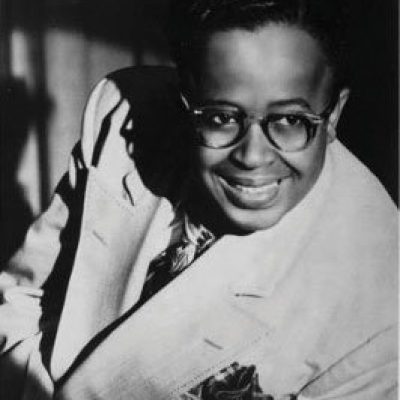
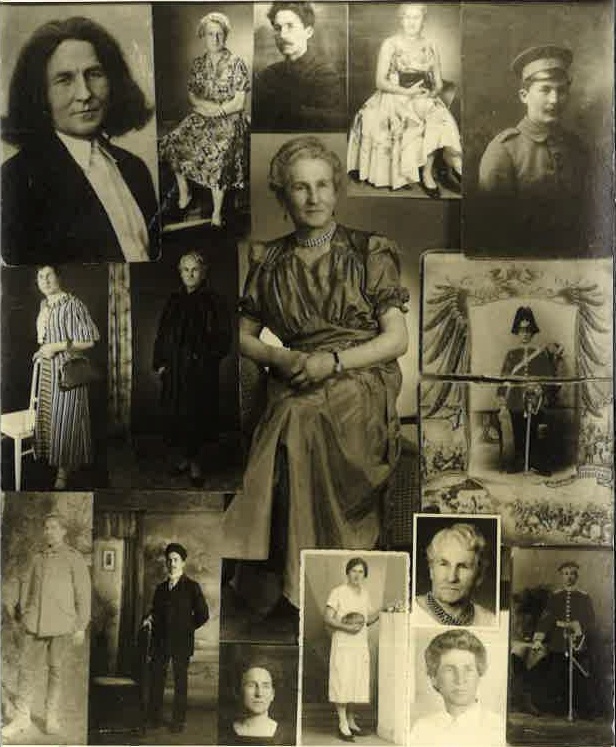
Toni Simon (*1887 †1979)
Today, we would call Toni Simon a German pioneer of non-binary life. On the occasion of Toni’s seventieth birthday in 1956, a collage of Toni’s various phases of life was created, which was then also sent as a postcard. In it Toni can be seen in different gender roles at a time, especially at the beginning Toni was mostly in male military uniforms and suits. As Toni grew older, Toni chose increasingly fancy dresses. Doing so, Toni wanted to break the rules of binarity and proved that gender binaries can be broken.
More tips for trans* people
Here are further ideas for trans* people in a workplace:
- Seek allies and role models within the company.
- If possible, work with the company to create a communication and action plan.
- Very important: You set the pace!
- Network with the LGBTIQ network, if one exists. We have compiled a list of LGBTIQ networks in companies and organizations.
Tips for Companies and Allies
- A Transition Guide clearly specifies who is responsible. Note: the trans* person determines the pace and whether an action should be implemented. Every transition is individual
- Enable name and pronoun changes before the official decision is made.
- Training sensitize HR and management
- Establish and strengthen an internal LGBTIQ network with dedicated trans contact persons
- Inform about the topic trans*
- Use gender inclusive language, ask for a person’s pronouns so they use the one chosen by the trans* person and not their deadname. Deadname is the old, discarded name of a trans* person.
- Only ask questions that you would answer yourself
- Consciously stand up for the rights and against the discrimination of trans* persons
Advice centers
Bundesverband trans*
“The Bundesverband Trans* (BVT) sees itself as a federation of individuals, groups, associations, federations and initiatives at regional, state and national level whose common endeavor is the commitment to gender diversity and self-determination and the commitment to human rights in terms of respect, recognition, equality, social participation and health of trans persons or persons not located in the binary gender system.”
Deutsche Gesellschaft für Transidentität und Intersexualität e.V.
“The dgti has set itself the goal of promoting the acceptance of transidents within society and counteracting their stigmatization. It should advise and support those affected and interested, if this is desired. An essential aspect of the work should be the (re-)integration of affected persons into the work process, in order to counteract the danger of social decline, which is still associated with social change today. It advocates more openness to one’s own identity and takes into account the diversity of human existence.”
Transmann e.V.
“Nationwide, volunteer-based, non-profit association for all woman-to-male (FzM/FtM) trans* and inter* people.”
TransInterQueer e.V.
“TrIQ is a social center and a politically, culturally and in the research field active association, which stands up for trans, intersex and queer living people in Berlin and beyond.”
Trans*Inter*Beratungsstelle
“The project of the Münchner Aids-Hilfe e.V. is equally there for trans* and inter* people as well as their relatives and friends.”
TGEU
“TGEU is a membership-based organization that was founded in 2005. Since then, TGEU has steadily grown and established itself as a legitimate voice for the trans* community in Europe and Central Asia, with 157 member organizations in 47 different countries.”
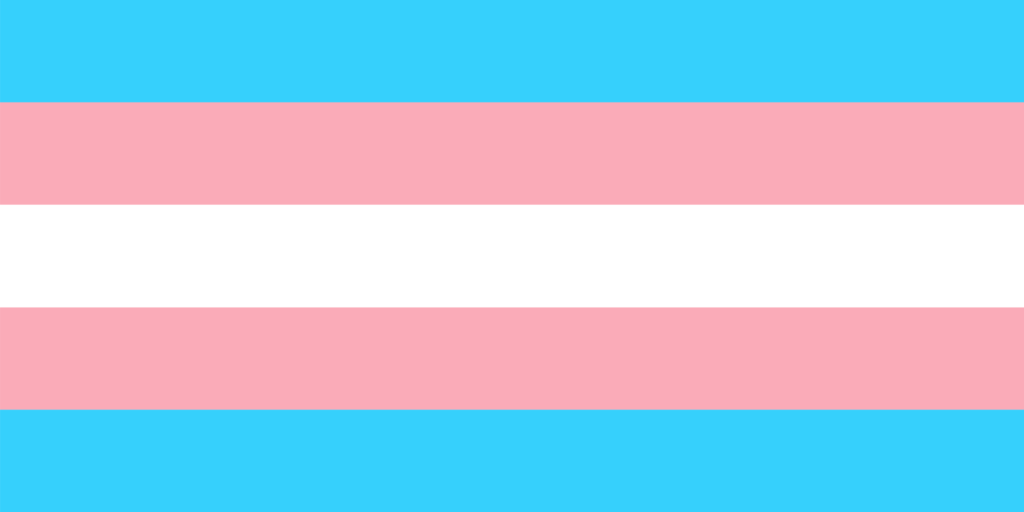
The International Transgender Day of Visibility takes place on March 31. This day should be used to empower the trans* community, create awareness for trans* topics and draw attention to existing discriminatory structures. We would like to contribute again this year to achieve more visibility for t* in LGBT*IQ.
To kick off the event, we held a panel on March 29th with the topic “trans* at work – existing difficulties & discrimination-free transitions”. Together with our panelists Julia Monro and Andrea Schuler, we mainly talked about stressful situations that trans* people can find themselves in during their transition. We illuminated these negative moments, let trans* people speak with their individual experiences in order to make existing discriminatory structures visible. It is important for us to present this side as well, in order to see and work out where there is room for improvement for companies and the responsible parties – and thus for the trans* people concerned. This way, mistakes can be avoided in the future, allowing more trans* people to look back on their transition in their company with positive feelings.
Panelists:
Julia Monro
Julia supports the German Society for Transidentity and Intersexuality e.v. in public relations and offers counseling for transgender people. In 2018, she founded her own project called Transkids and offers workshops at schools as a lecturer of the Pädagogisches Landesinstitut. She is involved in the trans* community to improve the living situation of transgender people and reports, among other things, from her own biography of experiences of discrimination in society and the world of work.
Andrea Schuler
Andrea Schuler’s area of expertise is the impact of gender diversity in social and professional contexts. After completing her Bachelor of Arts in Management of Social Innovations, Andrea was involved in the ERASMUS+ project Transvisible on the labor market integration of trans* people for the German Trans* Association. There, she collaborated on the publication TransVisible – A Guide for Better Labor Integration and Economic Empowerment of Trans* Women, among others. Andrea works as a psychosocial counselor at the Trans*Inter*Beratungsstelle München.
In the panel, the two experts asked the following question, among others.
“HOW CAN EMPLOYERS POSITION THEMSELVES TO MAKE TRANSITIONS GO WELL?”

Julia Monro, FREELANCE JOURNALIST AND TRANS* ACTIVIST
“Enormously important is the orientation to the person themselves, i.e. they set the pace and the direction. This additionally conveys appreciation and respects self-determined decisions, which increases satisfaction and loyalty.”
Andrea Schuler, CONSULTANT AND TRAINER, TRANSINTERCOUNSELING CENTER
“Many trans* people leave the company before they transition. So it’s incredibly important that a company sets the framework in advance for a good, shared, safe transition.”

n addition, in order to show examples of how a good and joint transition can work in the company, besides the existing difficulties, we asked trans* people the following question.
“WHAT HELPED YOU THE MOST IN A PROFESSIONAL CONTEXT DURING TRANSITION?”

Alice Oehninger, BIOLOGY LABORATORY TECHNICIAN TRAINER, BOEHRINGER INGELHEIM
“The uncomplicated change of form of address and e-mail, etc., even before my official name change helped me immensely. My colleagues have always addressed me correctly from the beginning. Their trust and flexibility have strengthened me enormously.”
Adrian Hausner, Site Reliability Engineer, Google Germany GmbH
“I was especially helped by the ‘Trans at Google’ network. Having a community like that behind you is immensely empowering, and the fact that discrimination against trans* people is absolutely not accepted, plus the ability to use gender-neutral restrooms. That’s also very important for non-binary colleagues.”


Leonora Friese, Business Consultant, AXA Konzern AG
“During my coming out and transition, I benefited especially from the support I received from HR. For example, by informing the workforce with an interview in the employee newspaper, a panel discussion on DiversityDay and a video about me and my work in the Group. Together we also developed a guideline on coming out and transition, so that we can continue to support other people in the future.”
THE PERSON QUOTED WISHES TO REMAIN ANONYMOUS
“As a non-out, non-intersex non-binary trans* person, I would experience a great relief if my employer recognized and supported my gender identity – even if the registry offices do not. For me, this includes in particular firmly established offers to use my self-chosen first name wherever it is legally possible – e.g. in daily interactions, in e-mail addresses, on door signs, etc.”

Joschua Thuir, HEAD OF TEACHING GROUP | SPECIALIST TEACHER FOR LAW AND ADMINISTRATION, FEDERAL POLICE FORCE
“I was very happy to be able to fall back on an official contact person who is also trans* before my outing at the workplace. Since she had already gained outing experience in the authority and shared it with me, I was well prepared for negative reactions, indiscreet questions and other unpleasant situations.”
Franka Uhlig, BUSINESS INFORMATICS SPECIALIST, IBM GERMANY GMBH
“After coming out, I immediately received positive signals from my management and HR. Particularly helpful was the support in changing my name in the online systems, on my employee ID card and on my mail address, so that I could quickly ensure my appearance as a woman in the company and to customers.”
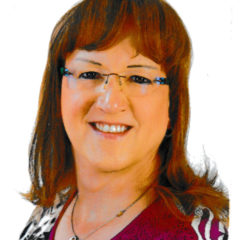
What can help me as a trans* person in a professional context? What counseling centers are there that I can turn to? Besides answers to these questions, we also offer an excerpt of possibilities that companies have to accompany a transition well. In addition, there are further tips for trans* persons and on the question of how you can be an Ally by supporting colleagues in transition.
FURTHER TIPS FOR TRANS* PEOPLE
The people quoting already offer some insight into support options. Here at a glance is an excerpt on further assistance:
- Seek allies and role models within the company.
- If possible, work with the company to create a communication and action plan.
- Very important: You set the pace!
- Connect with the LGBTIQ network, if one exists. We have compiled a list of LGBTIQ networks in companies and organizations.
TIPS FOR COMPANIES AND ALLIES
- A Transition Guide clearly specifies who is responsible. Note: the trans* person determines the pace and whether an action should be implemented. Every transition is individual.
- Enable name and pronoun changes before the official decision is made.
- Training sensitize HR and management
- Establish and strengthen an internal LGBTIQ network with dedicated trans contact persons
- Inform yourself about the topic trans*
- Use gender inclusive language, ask for a person’s pronouns so they use the one chosen by the trans* person and not their deadname. Deadname is the old, discarded name of a trans* person.
- Only ask questions that you would answer yourself
- Consciously stand up for the rights and against the discrimination of trans* persons
ADVISORY SERVICES (GErmany)
FEDERAL TRANS* ASSOCIATION
“The Bundesverband Trans* (BVT) sees itself as a union of individuals, groups, associations, federations and initiatives at regional, state and national level whose common endeavor is the commitment to gender diversity and self-determination and the commitment to human rights in terms of respect, recognition, equality, social participation and health of trans people or those not located in the binary gender system.”
GERMAN SOCIETY FOR TRANSIDENTITY AND INTERSEXUALITY E.V.
“The dgti has set itself the goal of promoting the acceptance of transidents within society and counteracting their stigmatization. It should advise and support affected and interested persons, if so desired. An essential aspect of the work should be the (re-)integration of affected people into the work process, in order to counteract the danger of social decline, which is still associated with social change today. It advocates more openness to one’s own identity and takes into account the diversity of human existence.”
Transmann e.V.
“Nationwide, volunteer-based, non-profit association for all woman-to-male (FzM/FtM) trans* and inter* people.”
TransInterQueer e.V.
“TrIQ is a social center and a politically, culturally and in the research field active association, which stands up for trans, intersex and queer living people in Berlin and beyond.”
TRANS*INTER*COUNSELING CENTER
“The project of the Münchner Aids-Hilfe e.V. is equally there for trans* and inter* people as well as their relatives and friends.”
TGEU
“TGEU is a membership-based organization that was founded in 2005. Since then, TGEU has grown steadily and established itself as a legitimate voice for the trans* community in Europe and Central Asia, with 157 member organizations in 47 different countries.”
Questions?
Contact us with questions and concerns about trans* in the workplace! We are happy to help.
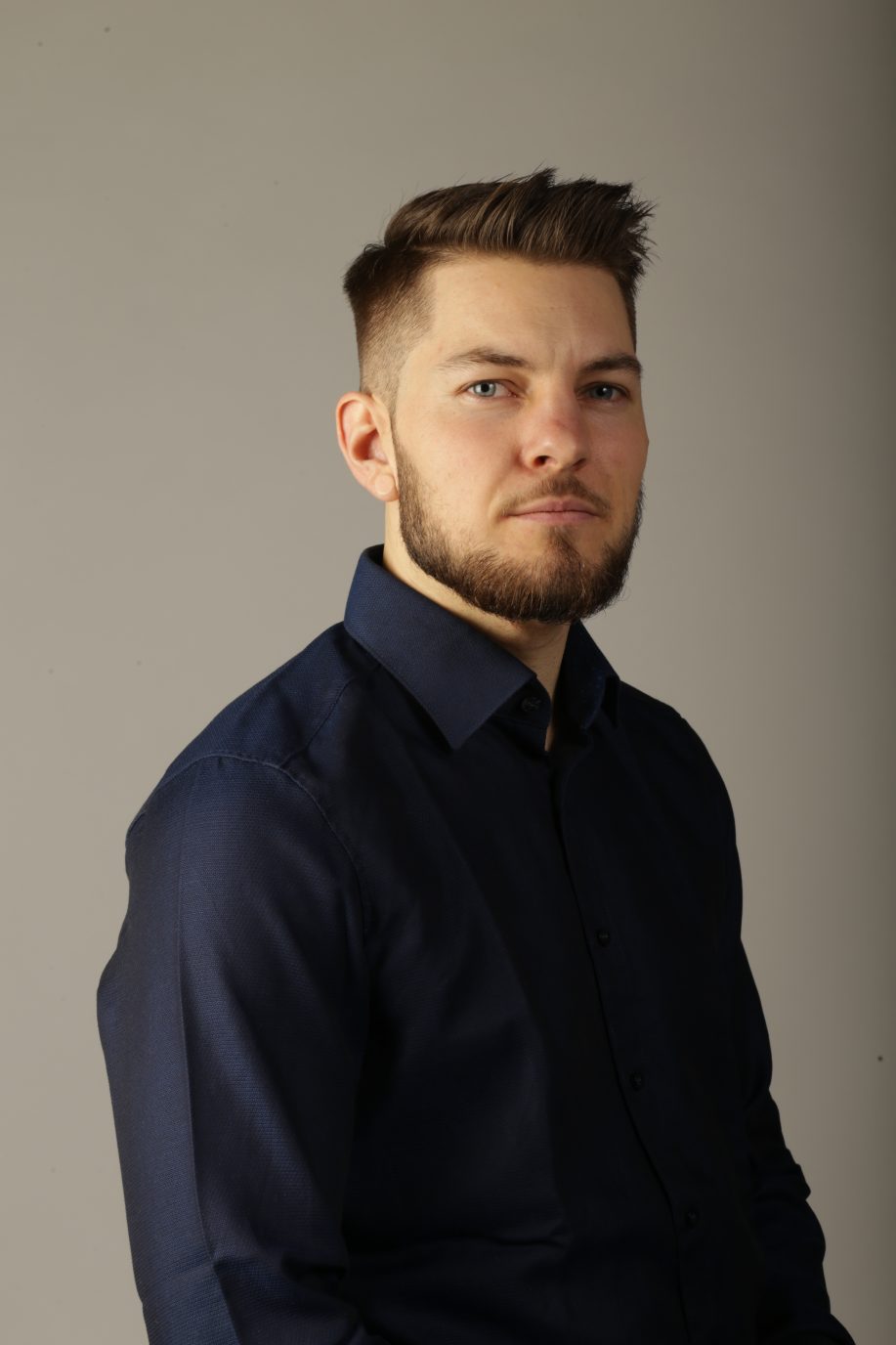
A talk with… Joschua Thuir
Trans*parency at work? Walking the line
A heterosexual male in private, a homosexual woman in the workplace – confused? Meet Joschua – a police officer who felt compelled to lead a double life for five years of his career. This is a story about professional transparency, courage and the need for progress in society and the law.
Joschua Thuir, 27, works as a police officer for the federal police force at Frankfurt Airport, mostly at entry/exit checks. Joschua’s duties also include patrolling the public areas of the terminals. In his free time, Joschua is involved with networks such as Deutsche Gesellschaft für Transidentität und Intersexualität e.V. (dgti) (German Association for Trans Identity and Intersex People), Verband lesbischer und schwuler Polizeibediensteter Deutschland e.V. (VelsPol) (Association of Lesbian and Gay Police Officers in Germany) and the police union Gewerkschaft der Polizei (GdP). Via these networks, he supports victims of homo- or transphobia, shares his experiences and trains colleagues on how to deal with transgender and intersex people in a legally compliant manner.
Why are you so heavily involved in the LGBT*IQ Community?
Joschua Thuir: For several reasons, one of which is my personal history. When I was 19 and still in training, I realised that I could no longer identify with the female gender role assigned to me at birth. However, I didn’t come out as a trans man at work until I was 25, because I feared that it would cost me my career if I disclosed my true identity before becoming a state official with lifetime job security and privileges.
Being a trans person might be an obstacle to becoming a state official?
Joschua Thuir: Indirectly, yes. To join the police force, you have to meet certain health criteria that are laid down in the official police instructions PDV300. You’re checked to see whether you meet these criteria when you’re hired and when your probationary period ends. PDV300 distinguishes between men and women. When I was originally hired – as a woman – I met all the criteria for female officers, but later I didn’t meet the ones for male officers. For example, men must have at least one functioning testis, which is not possible for a trans man according to current medical technology.
So, coming out during my training and probationary period was not an option for me. The exclusion criteria forced me to lead a double life in order to continue my career: for five years, I was a heterosexual man in private, but I went to work as a homosexual woman.
“I constantly feared being revealed as someone who was living a lie.”
Did hiding your true identity like this have an impact on your work?
Joschua Thuir: Absolutely. I constantly feared being revealed as someone who was living a lie. My efforts to pass for a woman also required an incredible amount of organisation, concentration and quick-wittedness. For instance, I had to react to female pronouns, although I didn’t feel that I was being addressed. In addition, there are some gender-specific duties at the police. Two concrete examples: I was regularly required to frisk women because of the relevant formal requirements which only permit frisking by people of the same gender (unless the situation is life-threatening). At passport control, I also frequently compared photographs of women not wearing a veil with women wearing a veil. This occasionally led to misunderstandings because of my rather masculine appearance.
In what other areas do you think your profession comes into contact with issues of gender identity or sexual orientation?
Joschua Thuir: As a police officer, I work with the law. However, our German Basic Law only recognises two genders and states that “Men and women shall have equal rights.” Police forms are thus based on a binary gender norm and are yet to include a third gender option. However, this is set to change by the end of the year, when a third gender is to be enshrined in the law.
A growing number of transgender or intersex people carry a supplemental ID. This ID card can be presented as an additional document in situations where someone is searched or asked for identification. It clarifies the legal situation and the identity of the person. It’s an aid to the police, so to speak. However, this ID card is not yet widely known.
Other points of contact can be found in asylum law. Persecution of homosexual and transgender people has now become a ground for asylum or refugee protection. Under the asylum procedure, these people must provide the Federal Office for Migration and Refugees – which processes and decides on their application – with proof not only of their persecution, but also of their sexual orientation or gender identity. In my day-to-day work, I’ve encountered people who have expressed their wish for asylum to me for these reasons.
What did you experience in your professional environment after coming out as a lesbian?
Joschua Thuir: Actually, I came out several times. When I was in training, I came out as supposedly lesbian and experienced some negative reactions from my fellow trainees. There were some verbal attacks like calling me “butch”, and non-verbal bullying like ridiculing my appearance in the communal showers. I also felt that my supervisors at the time had left me to deal with these day-to-day problems on my own. Once I was certain that I identify as a man, I didn’t open up to anyone in training any more. That’s a time I don’t want to remember. Unfortunately, I didn’t have the courage or strength to go to the next level of authority, nor did I have the relevant information, for example on VelsPol, the LGBT network in the German police, judiciary and customs authorities, to find a different way to ask for help.
“After I came out, colleagues from the continuing education team were very interested in using my expertise.”
And what did you experience when you came out as a trans man?
Joschua Thuir: When I came out as a trans man at the federal police force after those five years I mentioned before, the reactions were a lot more positive. But here, too, a few colleagues proved to be lacking social skills.
The next step must come from those higher up. Unfortunately, my attempts to make this point so far have been in vain. So I have to put up with colleagues who ignore me even if we are on patrol together and should have absolute trust in one another. I had to learn to deal with this.
After I came out, colleagues from the continuing education team were very interested in using my expertise. They asked me and another transgender colleague to prepare a talk for the aviation security training. To do so, I was even sent to Berlin for 2 days.
How did your supervisors react when you came out?
Joschua Thuir: The reactions of my supervisors at the time were very mixed, but by and large they ranged from positive to awkward. I asked a police trainer to disclose my identity to my direct supervisors and to ask them to forward this information to others in the command structures. I chose this approach to give everyone the opportunity to take a look at the German Transsexuals Act so that they could familiarise themselves with the topic before talking to me. Unfortunately, there was still confusion on all sides which couldn’t always be clarified or resolved.
As is so often the case, each individual has an important role to play in such situations. Committed supervisors will not tolerate discrimination. Others are less (pro)active or even shy away from conflict.
“Lastly, I’d like LGBTIQ people not to feel alone either during training or later in their job and I’d like the fear of coming out in this organisation to become a thing of the past.”
What would you like to see in future in terms of the visibility of LGBT*IQ issues in your workplace?
Joschua Thuir: I’d like to see LGBTIQ issues included in vocational training and continuing professional development because incorrect behaviour often stems from ignorance and unease. At the least, police officers should be made aware of exceptions so that when they’re dealing with people who are not heterosexual or cis-gender¹, i.e. 10% of the population, they can also fulfil their duties confidently and in a legally compliant manner.
Additionally, I’d like the federal police force – in accordance with its guiding principles – to take a stand as regards LGBTIQ employees, provide more education on this topic and have the Federal Ministry of the Interior revise PDV 300 such that trans and inter people can no longer be automatically disqualified from service in the police force. Lastly, I’d like LGBTIQ people not to feel alone either during training or later in their job and I’d like the fear of coming out in this organisation to become a thing of the past. To achieve these goals, the federal police force needs to increase the number of designated contact persons and broaden their target group by extending it from LG to LGBTIQ, as has already happened in some state police forces. The role of contact person shouldn’t just be something that is done on the side and doesn’t involve any obligations. It should be used proactively to increase awareness and counter discrimination both within and outside the organisation. Initial steps in the right direction have already been taken – I would be happy to continue this journey together, with the support of our organisation.
¹This term refers to people whose gender identity matches the sex assigned to them when they were born.
